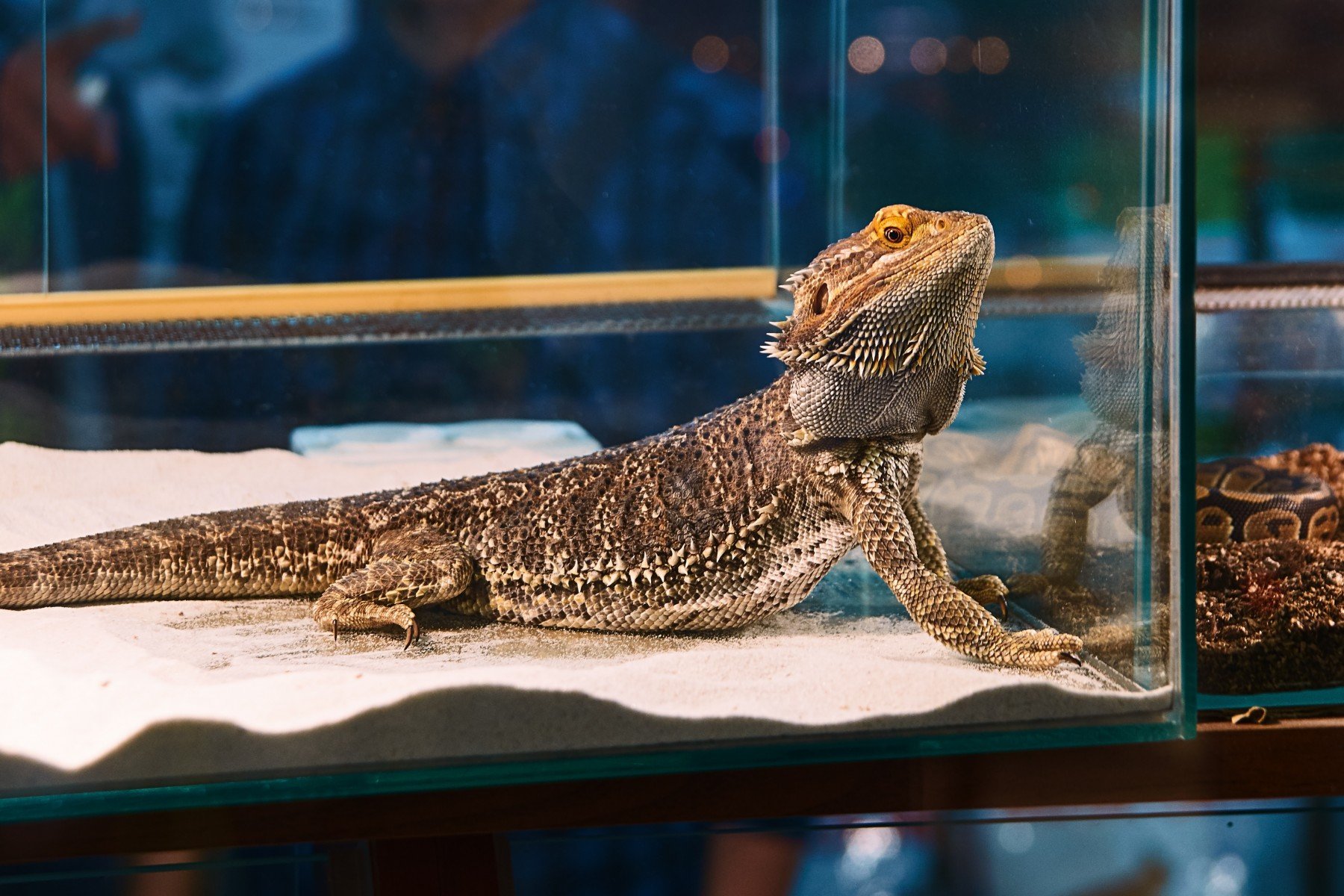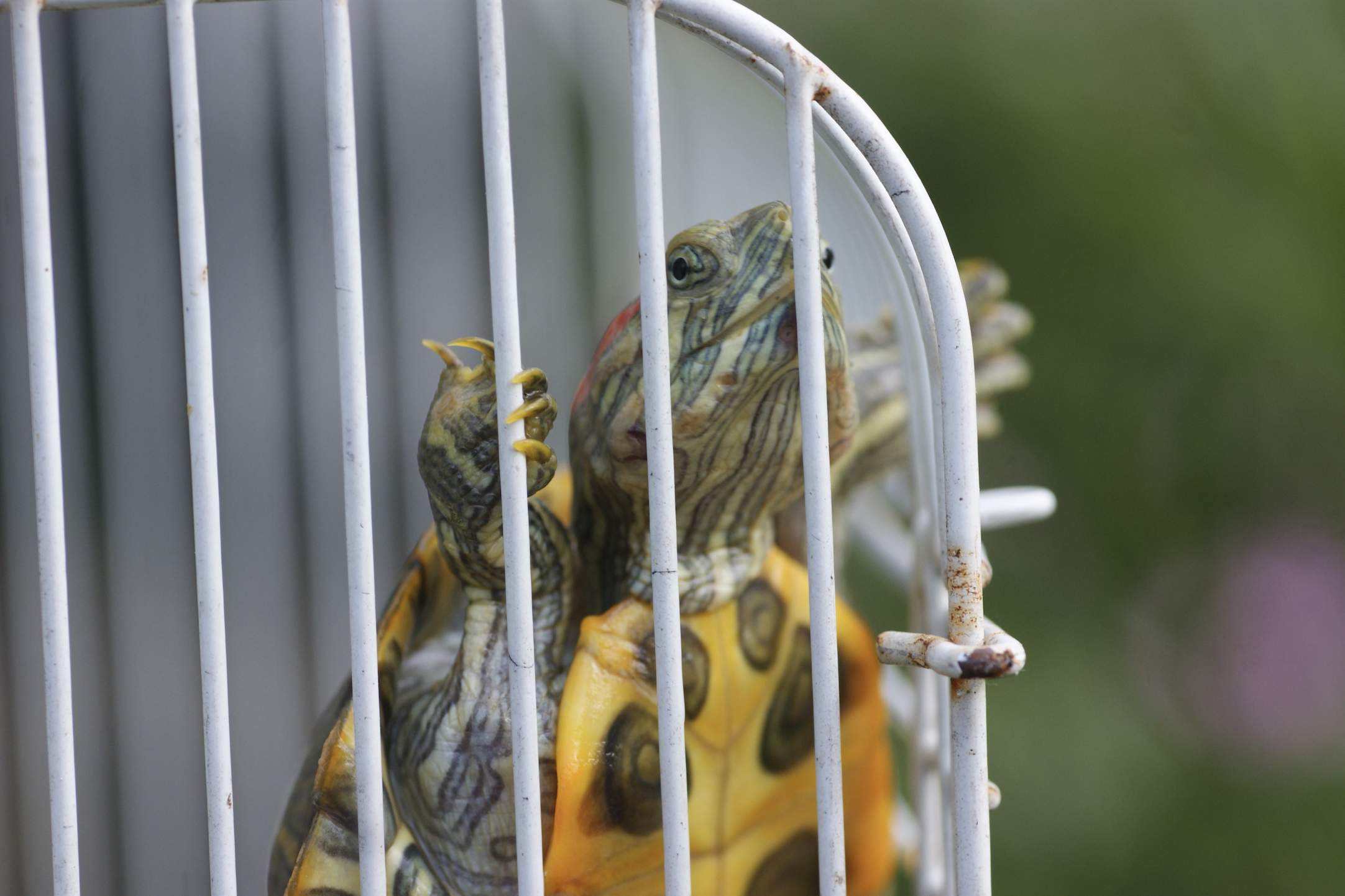
New AI Tool Doesn’t Change That Selling Animals in Pet Stores Hurts Shelters
Blog
PetSmart’s AI tool could help find homes for adoptable animals, but ending the sale of animals in its stores is a more effective way to help overwhelmed shelters.
PetSmart Charities has a new AI tool, Rescue Writer, that helps shelters create profiles for animals waiting to be adopted. An animal’s chance of being adopted increases when shelters share profiles that give potential adopters a glimpse into an animal’s personality and history. This kind of tool could be a lifesaver for under-resourced and understaffed shelters.
But why are so many animals waiting for homes in the first place? The answer is complex, but we know that selling animals in stores is part of the problem. While PetSmart doesn’t sell dogs and cats, who make up most animals in shelters, it sells dozens of other animals, from small mammals like guinea pigs and hamsters to reptiles, amphibians, birds, and fishes. These animals are especially challenging to adopt because many require complex care, sometimes for decades. Far fewer shelters accept these animals, and, on average, it takes more time to adopt animals who aren’t cats or dogs.
We recognize that finding homes for dogs and cats is the primary goal of PetSmart Charities’ new tool. Still, we can’t ignore the “bearded dragon” in the room—while PetSmart Charities is helping dogs and cats in shelters, PetSmart is pushing other animals into the same overwhelmed system.
Shelters Across the Country Are Struggling
New York City banned the retail sale of guinea pigs after the city experienced a surge in abandoned and surrendered guinea pigs. The Humane Society of the United States’ (HSUS) New York state director Brian Shapiro explained, “The goal of this legislation was to solve the root cause of the problem, and that is the cheap sale of high-maintenance animals.” Boston and Allentown, PA recently passed their own bans.
The PetSmart Cycle: From Store to Shelter
Animals sold in pet stores are born in mills, confined to small cages, tubs, and tanks, typically without adequate food, water, or veterinary care. Mills sell the animals to dealers, who sell them to pet stores like PetSmart and Petco.
At pet stores, wild animals like parrots and turtles are often falsely advertised as “easy,” low-maintenance, or good for children. Pet stores are the number one source for small mammals like hamsters and guinea pigs. When people find out that these “cheap” animals aren’t easy to care for (all of these animals require special housing and a specialized diet), many end up in shelters. Other animals are abandoned outside.
An AI tool that helps shelter staff quickly write profiles for these animals is great, but it can’t compensate for the immense suffering caused by the mass sale of cheap animals at pet stores. AI tools like Rescue Writer are also going to prioritize telling stories people want to hear and will likely miss or omit the truths the industry keeps hidden. If PetSmart Charities really wants to help shelters, it should encourage PetSmart to stop selling animals in its stores.
In the meantime, we’ve drafted a few accurate profiles telling the truth about where these animals come from.

Bea
I’m Bea, an energetic bearded dragon who should be living my best life in Australia's scrublands but am stuck in a 40-gallon tank in Massachusetts instead. I barely survived Reptiles by Mack, a notorious reptile mill, before being shipped in the freezing cold to a PetSmart. Most of the other bearded dragons packed with me died. The family that bought me is tired of setting up my tank, which requires specific lightening, and buying me fresh veggies and mealworms. Will you adopt me and give me a chance to enjoy my twilight years in peace?

Rebecca
I’m Rebecca the red-eared slider. PetSmart didn’t tell the little kid who bought me that I would be sticking around for the next three or four decades. Well, now little Stevie is off to college and I’m still here, swimming back and forth in my tiny tank. My family is sick of changing my water and how much space my tank takes up in their living room (If only they knew how much room I’d have in the wild where I belong). At least they didn’t ditch me outside. Red-eared sliders have the bad habit of outcompeting local turtles for food and resources. Will you be my hero and give me a new place to call home?
You can help.
Big box pet stores like PetSmart and Petco would make the biggest impact by cutting off the flow of these tough-to-adopt animals in shelters. Tell PetSmart and Petco to stop selling animals.